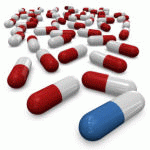Pharmacology
|
10 october 2022 12:25:31 |
| Marine Drugs, Vol. 20, Pages 634: Marine Biotoxins in Whole and Processed Scallops from the Argentine Sea (Marine Drugs) |
|
Tweet Harmful algal blooms are an increasing worldwide threat to the seafood industry and human health as a consequence of the natural production of biotoxins that can accumulate in shellfish. In the Argentine Sea, this has been identified as an issue for the offshore fisheries of Patagonian scallops (Zygochlamys patagonica), leading to potentially harmful effects on consumers. Here we assess spatial and temporal patterns in marine biotoxin concentrations in Patagonian scallops harvested in Argentinian waters between 2012–2017, based on analyses for paralytic shellfish toxins, lipophilic toxins, and amnesic shellfish toxins. There was no evidence for concentrations of lipophilic or amnesic toxins above regulatory acceptance thresholds, with trace concentrations of pectenotoxin 2, azaspiracid 2 and okadaic acid group toxins confirmed. Conversely, paralytic shellfish toxins were quantified in some scallops. Gonyautoxins 1 and 2 dominated the unusual toxin profiles (91%) in terms of saxitoxin equivalents with maximum concentrations reaching 3985 µg STX eq/kg and with changes in profiles linked in part to seasonal changes. Total toxin concentrations were compared between samples of the adductor muscle and whole tissue, with results showing the absence of toxins in the adductor muscle confirming toxin accumulation in the digestive tracts of the scallops and the absence of a human health threat following the processing of scallop adductor meat. These findings highlight that paralytic shellfish toxins with an unusual toxin profile can occur in relatively high concentrations in whole Patagonian scallops in specific regions and during particular time periods, also showing that the processing of scallops on board factory ships to obtain frozen adductor muscle is an effective management process that minimizes the risk of poisonings from final products destined for human consumption. |
| 88 viewsCategory: Biochemistry, Molecular Biology, Pharmacology |
 Marine Drugs, Vol. 20, Pages 633: An In Vivo Study to Evaluate the Efficacy of Blue Shark (Prionace glauca) Cartilage Collagen as a Cosmetic (Marine Drugs) Marine Drugs, Vol. 20, Pages 633: An In Vivo Study to Evaluate the Efficacy of Blue Shark (Prionace glauca) Cartilage Collagen as a Cosmetic (Marine Drugs)Marine Drugs, Vol. 20, Pages 635: Isolation, Synthesis and Absolute Configuration of the Pericharaxins A and B, Epimeric Hydroxy-Polyene Glycerol Ethers from the Calcarean Sponge Pericharax heteroraphis (Marine Drugs) 
|
| blog comments powered by Disqus |
MyJournals.org
The latest issues of all your favorite science journals on one page
The latest issues of all your favorite science journals on one page



